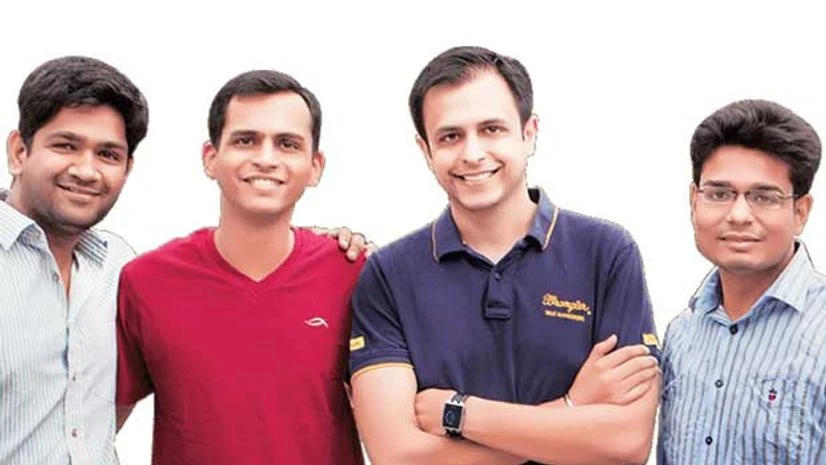Like many children of his age, six-year-old Hammad Hisam Khan dreaded mathematics. However, a year after enrolling at Cuemath, a start-up that specialises in making maths easy for kids, the boy now loves the subject and has mastered the basic concepts.
Cuemath is an after-school math-learning programme. It uses a combination of online and offline modules, of teaching, tabs, and puzzle cards to enhance the basic. The module comprises special tab-based assessments, which track the progress of learning .
Founded in 2013 by Manan Khurma, an Indian Institute of Technology (IIT)-Delhi graduate, the start-up recently raised $4 million from Sequoia Capital and Unitus Seed Fund as part of a Series-A funding . It had earlier raised an undisclosed amount from Alok Mittal, former managing director of Canaan Partners.
Abheek Anand, principal, Sequoia Capital India Advisors, says: "Cuemath has an interesting business model, with passionate founders, and they have access to a large market. All the three ingredients for becoming a successful venture are present in this company."
The concept
Khurma has been in the teaching field for eight years; he used to teach maths to students from classes nine to12 for the IIT entrance exam. But, he realised it was too late and the fundamentals of mathematics had been compromised in the early years. This propelled him to start a firm, which concentrates on the basics of the subject from kindergarten to Class 8.
Cuemath imparts the fundamentals of mathematics and helps students appreciate its logic and beauty. It goes beyond the school syllabus to cover mental aptitude, which helps students solve verbal, non-verbal, and analytical problems.
It is a personalised programme, where there is no active teaching; students have their own learning trajectories, monitored by teachers. They learn by doing exercises themselves with various quizzes and worksheets. "If one learns maths properly, one develops an analytical approach towards life and can handle any problem with greater efficiency," says Khurma.
The opportunity
Investors say Cuemath has a good quality technology platform and curriculum, and a scalable distribution model. ''With millions of potential teachers and several times more potential students in India, there is a very deep market here to build a large and transformative education company," says Sequoia's Anand.
"Students are now preferring to learn online rather than travelling all the way to coaching centres," says Vamsi Krishna, chief executive officer, Vedantu, an education start-up. Cuemath has to compete with Abacus Mental Mathematics, which has gained significant ground in the country. To involve parents in children's learning experience, it offers a 'cueparent' app, which helps parents track what their child is learning (quizzes, puzzles) and how he or she is doing.
Cuemath's strength is that it focuses on one subject, unlike other players in this field who focus on a number of topics, so that students could get everything under a roof. This could persuade children to opt for such courses.
It follows a revenue sharing model with teachers. Each student is charged Rs 1,500-2,000 a month, depending on the city. There is no fixed salary for teachers but the revenue is shared in a 60:40 ratio. A teacher typically earns Rs 30,000 a month. If a teacher handles 50 students, she can earn up to Rs 50,000. Each centre has up to six batches, with eight students per batch. The start-up hopes to make profits in a year and a half. The focus right now is on expanding reach.
Road ahead
Cuemath has set up centres in six cities - Mumbai, Delhi, Hyderabad, Bengaluru, Pune and Chennai. Next, it plans to expand to Tier-2 cities and, eventually, roll out nationwide. It plans to expand its faculty, whose current strength is 1,200.
By 2017, the start-up plans to test some international markets. Its plans include creating more awareness for its learning module, improving product quality and making people realise the relevance of mathematics in real life and how it improves the overall problem-solving capacity of a child.
FACT BOX
Inception: October 2013
Area of business: Maths tutorial
Funding: Recently raised $4 mn from Sequoia Capital and Unitus Seed Fund as part of its series-A funding
Founder: Manan Khurma
Target: 25,000 students by Dec 2016 and 5,000 teachers by Dec 2017
EXPERT TAKE: Jayanta Banerjee
The education technology market has the potential to replace the traditional after-class teaching in India. Kids today have grown up seeing/using tablets and smartphones, giving them enormous comfort in using these devices for long periods of time. Successfully distributing educational content over these devices will open up a huge market, hungry for quality teaching and educational content. The ability to provide consistent quality and the ability to keep students engaged to the relevant app will be crucial for success in this space. These factors should ideally be measured by the number of times students come back to an app and the fraction of relevant content they consume over its lifetime, not only the number of downloads.
Teaching quality, providing offline support where required and providing updated and relevant content are key challenges in this space. Niche players (subject -pecific / geography-specific) will, however, continue to pose challenges to the growth of online ed-tech companies. It is yet to be proven that students are willing to pay top dollar for quality content, though. This might prove a big challenge for this sector in the medium term.
Jayanta Banerjee, managing partner, ASK Pravi Capital Advisors

)
